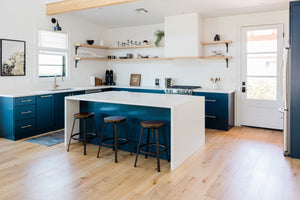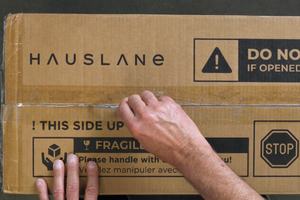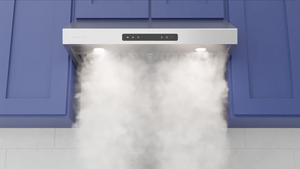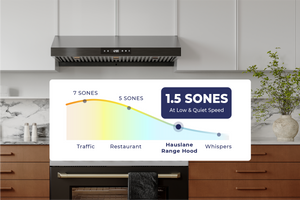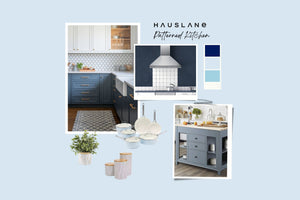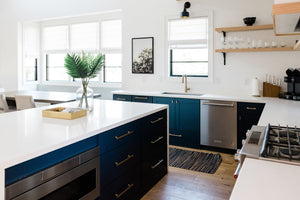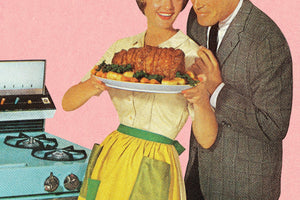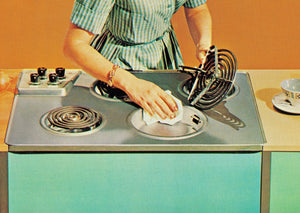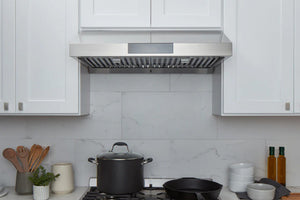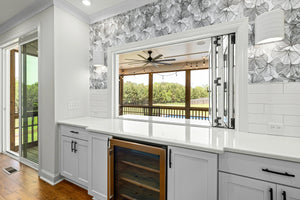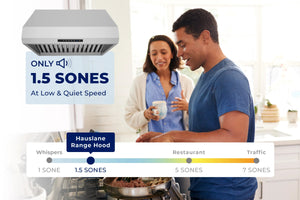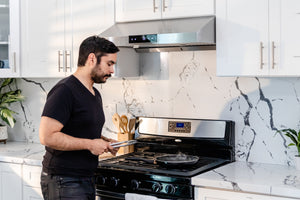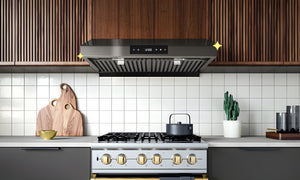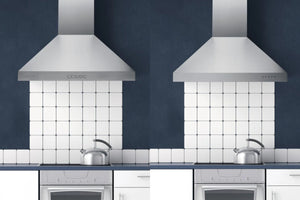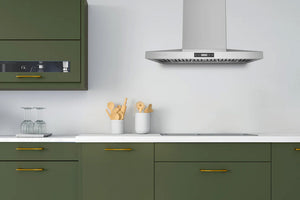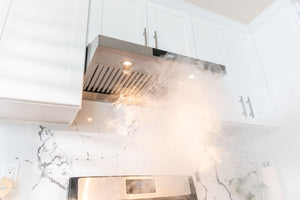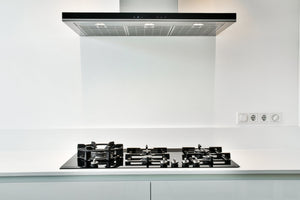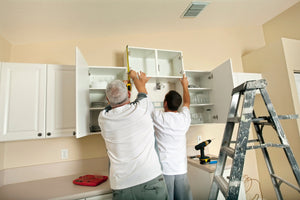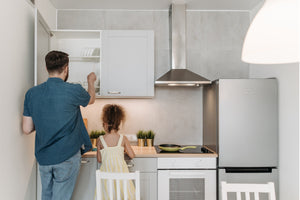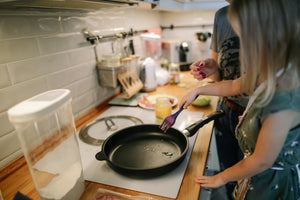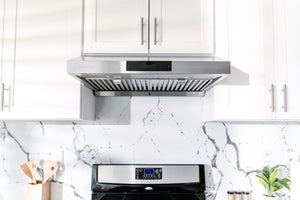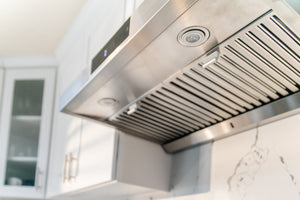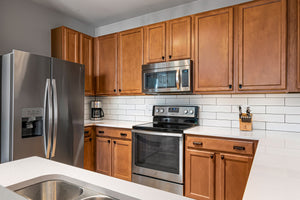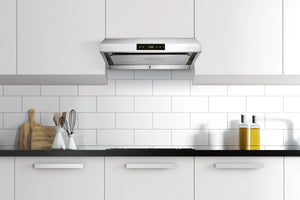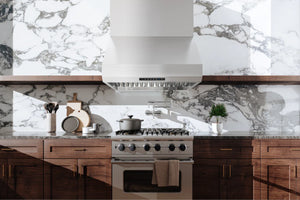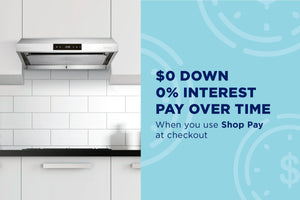TIPS & GUIDES
Everything You Need to Know About Sones Ratings for Range Hoods
By Hauslane ∙ 10 mins readShopping for a new range hood? You’re probably considering size, performance, quality, and appearance to help you make your decision. But have you given any thought to the noise level of your new appliance? Range hood sound levels can vary. The amount of noise a range hood produces is typically measured by a Sones noise rating.
In this article, we’ll explain exactly what a Sones noise rating means, why it matters, and factors that affect the rating. That way, you can make sure you get the ideal range hood for your kitchen for the most comfortable cooking experience.

Defining the Sones Rating
A sone is defined as a unit of sound or loudness. Sones are used to measure noise, such as fans, which includes kitchen fans, bathroom fans, and those found in your range hood. One sone is equal to about 1,000 Hz with a sound level about 40 decibels above a normal reference level. In other words, a sound that delivers over four sones is about four times louder than the normal reference level. However, it’s important to note that two sones don’t add up to 80 decibels. Decibels don’t increase at a linear level. Instead, they follow a curve that slowly flattens out.
Sones To Decibel Formula
dB = 33.2*log10(Sones) + 28
To convert one sone to decibels:
dB = 33.2*log10(1) + 28 = 28 dB
To convert decibels to sones:
Sones = 10((db-28)/33.2)
Sones To Decibels Calculator
|
DB:
|
Not in the mood to break out your high school math skills? Follow this chart instead:
| Sones | Decibels |
|---|---|
| 1 | 28.00 |
| 2 | 37.99 |
| 3 | 43.84 |
| 4 | 47.99 |
| 5 | 51.21 |
| 6 | 53.83 |
| 7 | 56.06 |
| 8 | 57.98 |
| 9 | 59.68 |
| 10 | 61.20 |
| 11 | 62.57 |
| 12 | 63.83 |
| 13 | 64.98 |
| 14 | 66.05 |
| 15 | 67.05 |
| 16 | 67.98 |
| 17 | 68.85 |
| 18 | 69.68 |
| 19 | 70.45 |
| 20 | 71.19 |
Most range hoods have a range hood noise rating of roughly 6 to 10 sones. For a frame of reference,
✦ One sone: the sound of a refrigerator humming
✦ Two sones: a quiet office or another professional environment
✦ Three sones: a TV playing at a comfortable volume
✦ Four sones: a typical conversation between two people
✦ Five sones: a louder, more active conversation
✦ Six sones: a quieter restaurant setting
✦ Seven sones: light traffic
✦ Eight sones: the average sound of traffic
✦ Nine to ten sones: congested traffic sound

Factors that Affect the Sones Rating
What makes one range hood louder than the other? There are a few factors influencing range hood noise levels to keep in mind.
✦ Factor 1

The installation type is one of the major factors. Consider whether you are using flexible or rigid ducts. Flexible ducts allow for a quieter operation. The same is true for under cabinet range hoods. The duct is hidden inside the cabinet, which serves as a noise barrier.
Make sure to check the type of installation and if it works with your kitchen. Installing a range hood improperly can affect its performance and noise level. For best results, have the appliance professionally installed to ensure proper venting.
✦ Factor 2
The size of the appliance will also affect the range hood noise level. Range hoods with larger motors will have stronger suction power and generally produce more noise. Check the sones level of the range hood prior to purchase. Look for a multi-speed setting so you can easily control the noise and power level of the appliance.

The larger the motor of your range hood, the more sound it is likely to produce. Always check the sones level to ensure it is within your desired level. You can also select a range hood with an external motor system. This system is installed on the roof or the attic to minimize noise.
✦ Factor 3
Ducts can also make a difference in the range hood noise level. Generally speaking, the larger the size of the duct, the quieter the operation. A bigger exhaust opening helps to reduce the noise generated by air inside the range hood and air exiting the house
Why Do Sones Ratings Matter?
Most of us enjoy some peace and quiet every now and again. High levels of noise can cause unnecessary stress. Even noisy homes can make you feel stressed out.
Understanding the Sones noise rating of your range hood can help you find the right model for your cooking needs and comfort level. Keep in mind that range hoods with larger motors and suction power will create more noise. However, they are excellent at quickly sucking away odors, fumes, and grease.

If you select a range hood with a large motor and multi-speed setting, you can strike the right balance. The Hauslane UC-PS18 features a 6-speed setting, allowing for maximum control over noise and performance. For example, if you’d like to chat with friends while cooking, run the range hood at the lowest setting. If you want to clean your air quickly, place the fan on the highest setting.
How to Determine the Right Sones Rating
The right range hood noise rating depends on your preferences and cooking style. If you do a lot of heavy-duty cooking with high temperatures, you’ll need a range hood equipped to handle the heat, fumes, and steam. These models will likely produce more noise than one designed for light cooking.
You can control the noise level through the settings and regular maintenance. Explore the multi-speed settings to find the ideal balance between suction power and noise control. Range hoods with a delay shut-off feature can also help. They will turn off the appliance after a set amount of time.
Need more help finding the ideal range hood for your kitchen? You’ve landed in the right place! Our team at Hauslane is ready to help. Reach out to us today to get started.





